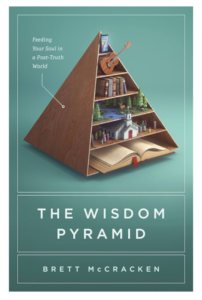“I thought if I preached gospel-centered sermons, I’d have a gospel-centered church,” a friend lamented to me. His church was rife with gossip, dissension, moralism, and apathy, despite a deep gospel centrality on Sunday mornings. The church had a gospel pulpit, but not a gospel culture.
Our conversation caused me to reassess the culture of my own church—-and renewed my zeal to help others do the same. As I network with leaders, I see this mistake repeated consistently. Pastors and leaders are waking up to the centrality of the gospel. They hear leaders like Tim Keller talk about “getting the gospel down deep” into every aspect of the heart and life. And they labor in their preaching and their discipleship to do just that. But they neglect to apply the same insight to their church as an organization. They fail to “get the gospel down deep” into the ethos of their church.
Organizational culture is crucial. We see this in business, as Patrick Lencioni has recently observed: “The single greatest advantage any company can achieve is organizational health.” And we see it in the Bible, for example, when the writer of Kings observes that Jehoshaphat “did what was right in the sight of the Lord; yet the high places were not taken away, and the people still sacrificed and made offerings on the high places” (1 Kings 22:43). Israel had developed a culture of idol worship—-and that culture persisted even when the idol worship itself temporarily ceased. Hezekiah was a more shrewd reformer: he “removed the high places and broke the pillars and cut down the Asherah” (2 Kings 18:4).
Culture is the “feel” of an organization. It’s what’s caught rather than taught. It’s what oozes out of the corners of your communication, your staffing decisions, and your community groups. The gospel is not just preached from the pulpit; it permeates the DNA of the organization. People regularly celebrate Jesus and the redemption he provides. Heart idolatry, unbelief, and “the sin beneath the sin” are familiar terms and concepts. Staff and leaders are discipled to understand the dynamics of spiritual renewal and to consistently practice repentance and faith.
Preaching a gospel-centered sermon is relatively easy, at least when compared to building a gospel culture. Culture shaping takes time and prayer and patience and persistence. But rest assured: it’s part of our calling as leaders. So we can’t be satisfied with preaching the gospel. By God’s grace, we must work the gospel down deep into the fabric of our churches and ministries. Here are some questions that have helped me assess the DNA we’re forming in our church:
- Is our children’s ministry curriculum gospel-centered? Is it teaching kids to see Jesus as the hero of every story and to trust him?
- Does our worship service have a “gospel flow” to it that includes communal confession of sin, hearing the promises of the gospel, and responding in faith?
- Are we training our community group leaders to “get to the heart” with the people they’re leading and discipling? Do they understand the dynamics of spiritual renewal and how to facilitate it in others?
- Do we regularly help emerging leaders identify basic idolatries (fear of man, control, respect, knowledge, comfort) and turn from them in repentance and faith?
- Do our counseling ministries surface unbelief and false gods? Do our counselors show people how Jesus is better, urging them to repent and believe in a way that brings true change?
- Are we training elders and future elders to be more “gospel fluent” so they can skillfully apply the gospel to all kinds of problems and issues in the church?
If you’re looking for good tools to help in some of these areas, check out the resources at the Gospel Resource Network. But whether you use our resources, find others, or create your own, make sure you’re doing more than just preaching gospel-centered sermons. Because gospel preaching is great . . . but a gospel culture is better.
Is the digital age making us foolish?
 Do you feel yourself becoming more foolish the more time you spend scrolling on social media? You’re not alone. Addictive algorithms make huge money for Silicon Valley, but they make huge fools of us.
Do you feel yourself becoming more foolish the more time you spend scrolling on social media? You’re not alone. Addictive algorithms make huge money for Silicon Valley, but they make huge fools of us.
It doesn’t have to be this way. With intentionality and the discipline to cultivate healthier media consumption habits, we can resist the foolishness of the age and instead become wise and spiritually mature. Brett McCracken’s The Wisdom Pyramid: Feeding Your Soul in a Post-Truth World shows us the way.
To start cultivating a diet more conducive to wisdom, click below to access a FREE ebook of The Wisdom Pyramid.



































